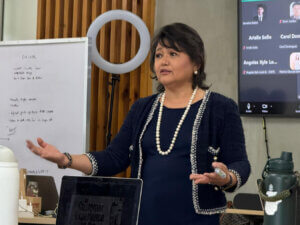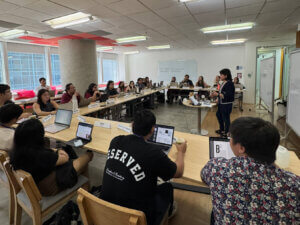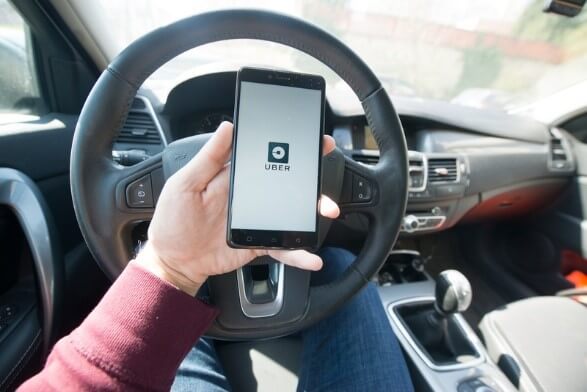In the third session of UPBA198, we took a deep dive into how Uber leverages machine learning to improve the customer pickup experience. The class explored various pain points encountered by both riders and drivers, ranging from GPS inaccuracies to navigating complex urban environments. We worked through different customer personas to understand their unique needs, idealizing what a perfect pickup scenario would look like for each. From these discussions, we designed a quantitative metric to assess pickup quality, providing a framework to measure and enhance the customer experience systematically.

We also discussed Uber’s ambitious vision: “to build an effortless pickup experience for everyone, everywhere, every time.” While this aspiration sets a high bar, it highlights the complex challenges of real-world implementation. Managing a global network—operating across 60 countries and 400 cities, with diverse rider and driver expectations—requires a sophisticated, dynamic approach. Our session underscored how machine learning models can predict rider behavior, refine pickup locations, and improve the experience in real time.
Expanding beyond the Uber case study, we explored broader concepts in customer experience in the age of AI. Here, we discussed how companies can create “intelligent experience engines” that utilize AI to continuously learn from customer interactions, ensuring seamless, personalized experiences across all channels. Personalization has emerged as a critical differentiator in today’s market, moving beyond targeted offers to create integrated, end-to-end experiences for customers. However, achieving this requires overcoming significant challenges, including data integration across silos, real-time orchestration, and cross-functional teamwork.
We examined examples such as Brinks Home and Qantas, which have successfully leveraged AI for increased revenue and optimized customer interactions. Their experiences illustrate the components of effective AI-driven engines: a 360-degree view of the customer, seamless flow through touchpoints, cross-channel engagement, contextual fulfillment, and relentless testing. The session concluded with an exercise prompting students to think about which experiences they would revolutionize using AI and the data needed to make those experiences better.
Through lively discussions, students shared their own experiences with ride-sharing apps like Uber and Grab, enriching our exploration of how machine learning and AI can transform customer experiences. The key takeaway from the session was clear: while AI offers powerful tools for personalization, the path to a flawless customer experience demands a holistic approach—integrating data, deploying agile teams, and continuously refining through real-time insights.
In today’s AI-driven landscape, companies like Uber illustrate how machine learning can go beyond basic functionality to create exceptional customer experiences. Our session aimed to provide students with not just an understanding of the technology but also the strategic mindset needed to apply it effectively in real-world scenarios.

Explore how AI and machine learning are revolutionizing customer experiences, as companies like Uber lead the way in personalized service. To learn how John Clements Consultants can help your business leverage AI, contact us today!





